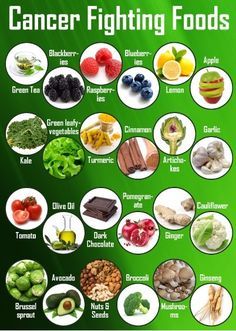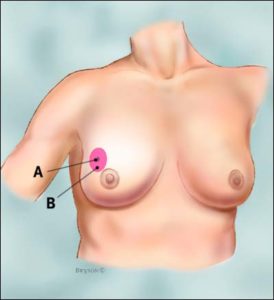Leave a Comment:
4 comments
Hi,
My mother had DCIS in 2012 and had a lumpectomy along with radiation for 6 weeks. Her mammograms have been clear, but she was just diagnosed with Stage IV Metastatic Breast Cancer that was found after a lymph node biopsy. The lymph node biopsied was above her collarbone and other lymph nodes around that area are enlarged on the scans. They did not find evidence that it had spread anywhere else after performing scans on head, chest and abdomen. Her bone scan was also negative.
We were all in disbelief… She is ERneg/PRneg/HER2Postive and is scheduled to start chemo on 12/23. I have searched all over the internet (although the doctors tell us not to), hoping to find someone with a similar diagnosis. We were surprised when a mammogram this week also shows that she is free from cancer in both breasts. I’m assuming that a cancer cell got into her blood stream during the lumpectomy and her doctor agreed that this is probably what happened… I am so worried about her receiving chemo and am pretty convinced that nutrition could do wonders, but the oncologist told me that no food is going to kill the cancer. At this point, I am out of my mind with worry, and am searching for everything and anything that can help her… I am trying to get her to avoid ALL processed foods and sugar and to eat a plant-based diet, but it is a work in progress. I see tons of info online but worry if anything I’m getting her to eat may affect her chemo treatment? Example, turmeric… and any other foods that are recommended to heal cancer. Any info you can provide is greatly appreciated.
ReplyHi Jana-
I am sorry to learn of your mother’s metastatic breast cancer diagnosis. I believe that you are correct in thinking that a breast cancer stem cell from your mom’s DCIS is the reason for the spreading of BC. I will try to enumerate what I see as the first therapy issues for you and your mom to address. Please reply with any and all questions you may have.
1) Yes, nutrition can do wonders as you say. Nutrition is as much about enhancing your mom’s immune system healthy as it is about killing the cancer. First and foremost, try to ease your mom into different nutrition habits. You are attempting a lifestyle change, not a diet.
Chemo and radiation may effect what your mom eats, smells, her appetite, etc. Smoothies, fruits, veggies, etc. can be a priority at different times. Try hard to listen to your mom about what she is feeling.
I don’t follow any one specific diet as a cancer survivor. I follow basic rules such as 1) as little processed sugar as possible 2) fruits and veggies throughout the day 2) as little alcohol as possible 3) frequent, moderate exercise (this may not seem like a nutrition change but a walk around the block daily will build appetite, help your mom sleep, etc.
For the basic direction for diet please watch Dr. Bill Li’s Ted Talk- 18 mins.
2) Bone Heath- please read the study linked in the blog post- the studies found that early bone therapy (bisphosphonates) BEFORE cancer spread to the bones helped significantly.
Bisphosphonates may prevent bone metastasizes in Breast Cancer, study finds
3) As for nutrition and conventional therapy such as chemo and radiation. Nutritional antioxidant supplementation such as curcumin/turmeric, entails several important issues.
1) Yes, some supplements have documented evidence of reducing the efficacy of a specific chemotherapy. The key is to research chemotherapies and specific supplements. I will give one good and one bad example below-
Good- A common class of chemotherapies for breast cancer is anthracyclines. This family has documented heart/cardiotoxicity. CoQ10 has been documented to reduce or prevent the cardiotoxicity of this class of chemo. I underwent Vincristine (anthracycline) therapy in 1995. I have lived with chronic A-Fib since ’10.
Bad- green tea extract (EGCG) has been documented to reduce the efficacy of Velcade. If your mom was about to undergo Velcade therapy I would tell her to stop all green tea consumption in anticipation of her chemo treatment.
The key is to research what chemotherapies and what supplements work together and which don’t. I can do the research but you must tell me what chemotherapies your mom’s oncologist has recommended in anticipation. I will provide you with the studies, if any, any you make the decisions. Many antioxidant supplements both enhance the efficacy of chemo while they reduce the toxicity.
I personally believe that this form of integrative therapy is the key to managing incurable cancer. I live an integrative lifestyle and I have survived my incurable cancer, multiple myeloma, since 1994. I will provide you with the studies and you and your mom decide.
Jana- the three issues above are what my experience has taught me are important. Let me know if you have questions.
Take a deep breath. I have input for caregivers too but that’s a later email…
Hang in there,
David Emerson
ReplyI need to find a breast cancer surgeon in Riverside County for a second opinion and another biopsy. I was diagnosed with invasive ductal carcinoma.Prefer someone who will do a lumpectomy and leave my lymph nodes alone. My HER2 was negative.
Please advice–I need help.
Thank you.
ReplyHi PJ-
My research is turning up many doctors who are “near” Riverside. I assume you are talking about Riverside, California. The doctor linked below is relatively close by at 14.4 miles, is board certified in general surgery yet specializes in breast cancer, is patient oriented (“Dr. Lalezarzadeh’s Care Philosophy Patient oriented. Treat the whole person: mind, body, soul. Patient needs to participate in their own care to get better. Educate patient to understand their disease and the surgery.) and should provide a second opinion that is worth listening to.
Please consider contacting me again to discuss anti-breast cancer nutrition, antioxidant supplementation, lifestyle all to reduce your risk of relapse as much as possible.
I want to spend a bit more time looking for BC surgeon in your area. I will reply again with what I find.
thanks
David Emerson
Director PBC




